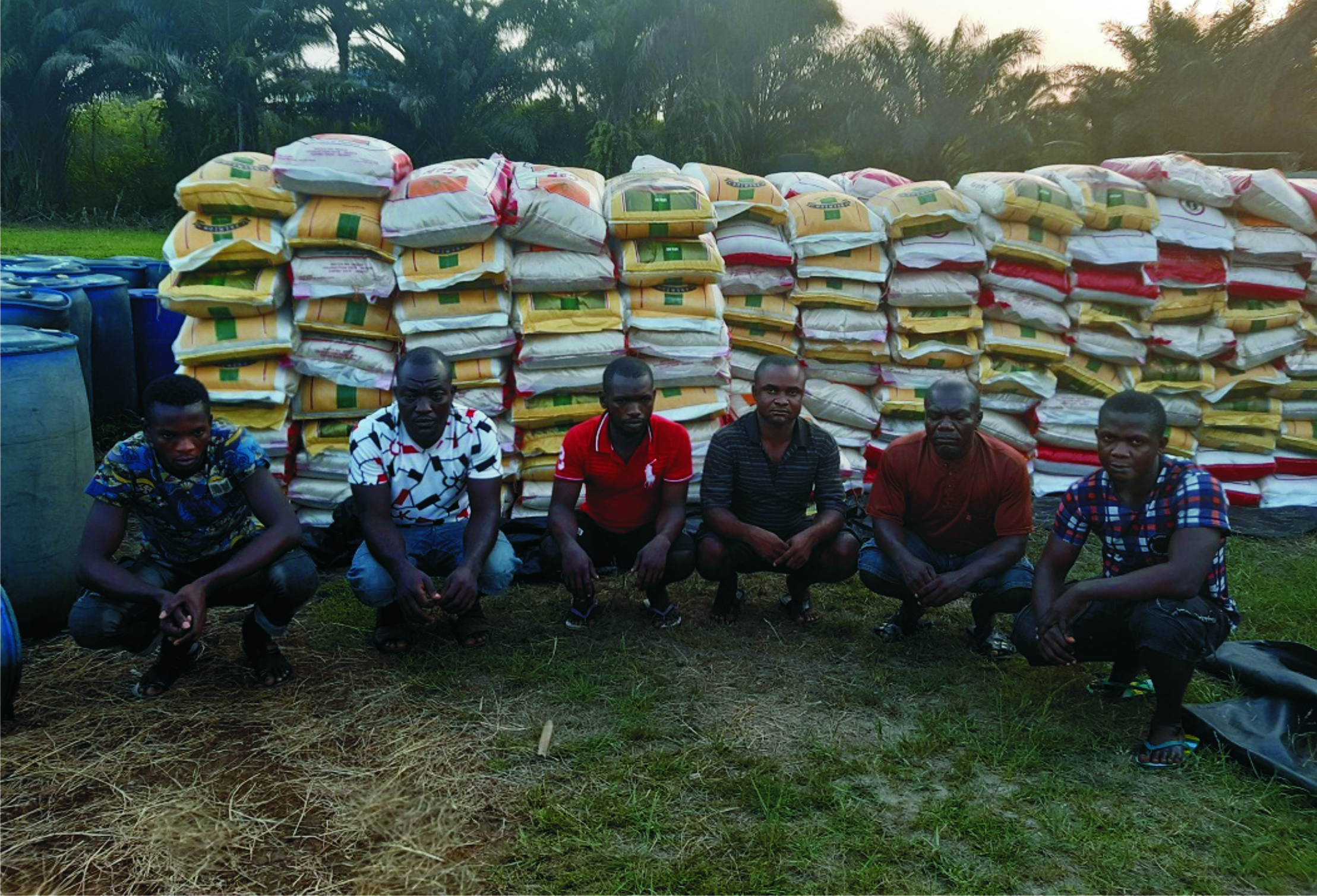Maritime
Navy Nabs Six Rice Smugglers In A’Ibom

The Nigerian Navy Command has arrested six suspected rice smugglers in Akwa Ibom State.
The Navy Forward Operating Base (FOB) also impounded 1,439 bags of smuggled rice between December 2019 and January 2020.
This was made known by the Commanding Officer, Forward Operating Base, in Ibaka, Mbo Local Government Area of Akwa Ibom State, Peter Yilme, in a statement last Wednesday.
Yilme said the suspects and the items impounded had been handed over to the Nigeria Customs Service in Mbo Local Government Area of the State.
The commanding officer, however, said some of the suspects escaped on sighting the Navy gunboats.
He said the command would remain steadfast in fighting illegalities on the waterways in line with the directives of the Chief of Naval Staff, Ibok Ibas.
Yilme said the arrests were made along the Unyenge, Effiat, and Mendoro creeks between December 2019 and January by Navy officers and men on routine patrol in their gunboats.
“I handed over 1,439 bags of rice and six suspects to the Superintendent of Customs, Garuba Hassan, in line with the directives of the Chief of Naval Staff.
“We are committed to rid the waterways of all forms of illegalities.
“I commend the untiring efforts of the officers and ratings in ensuring the mandate and tasks of the Base are achieved.
“I also appreciate the immense efforts of the Chief of Naval Staff, for providing the necessary platform and logistics support for the Base to carry out its operations,” Yilme said.
Confessing to the crime, a suspect from Bayelsa, Wede John, said that he usually transported fish and was carrying rice for the first time when he was arrested.
“I don’t know the owner of the rice and didn’t know that rice was loaded into the boat. This is my first time of carrying rice.
“I usually transport crayfish and dry fish to Oron Local Government Area of Akwa Ibom. I was carrying rice from Bakassi to Unyenge when I was arrested,” he said.
Also speaking, a suspect and boat driver, Awagoyi Philip, said the owner of the rice promised to pay him N20,000 for carrying the rice but that he was yet to collect the money.
“I drive boats and I was paid to drive the boat that carried the rice. This is my first time. The owner of the rice promised to pay me N 20,000 and is aware that I have been arrested”, he said.
Maritime
ANLCA BOSS LAUDS NATIONAL SINGLE WINDOW READINESS DURING LAGOS TRAINING

Maritime
NSC COLLABORATES POLICE FOR STRONGER INTELLIGENCE SHARING

Maritime
FOU ZONE “A” SETS TO BOOST PUBLIC TRUST,TRAIN OFFICERS ON REPUTATION MANAGEMENT

-
Politics3 days ago
2027: NIGERIANS FAULT INEC ON DIGITAL MEMBERSHIP REGISTER DIRECTIVE
-

 Environment3 days ago
Environment3 days agoLAWMA Director Says Sweeping Reforms Have Improved Waste Collection
-
Politics3 days ago
LP Crisis: Ex-NWC Member Dumps Dumps Abure Faction
-

 Politics3 days ago
Politics3 days agoUmahi Dismisses Allegations On Social Media, Insists On Projects Delivery
-

 Sports3 days ago
Sports3 days agoAbia Not Sure To Secure continental Ticket
-
Sports3 days ago
La Liga: Yamal Records First Career Hat-trick
-
Politics3 days ago
NATASHA ELECTRIC VEHICLES INITIATIVE IN KOGI CENTRAL
-
Politics3 days ago
IT’S A LIE, G-5 GOVS DIDN’T WIN ELECTION FOR TINUBU – SOWUNMI

